Education for digitalization: creating opportunities for coffee professionals at origin
Written by Carolina Pirola
According to data published by the International Coffee Organization (ICO), coffee producers have seen their average income decline by up to 10% over the last few years, leaving thousands well below the poverty line. In Nicaragua, for example, the proportion of those living on less than US$1.90 per day has gone up by a chilling 50%. While this reality is in part direct reflection of the low and volatile prices that have plagued the industry since the late 1990s, it is far from the only factor involved in the hardships affecting coffee producers worldwide.
Their dire situation is directly impacted – and even exacerbated – by the confluence of multiple challenges that limit their earning potential. Generalized gender inequity; lack of generational replacement, low and volatile prices, and lack of access to training are aggravated by three main challenges that coffee farmers and cooperatives across the globe face: poor access to information and services; difficulty accessing market opportunities, and unpredictable weather patterns caused by climate change.
Information is power
Coffee farms are often located in remote areas with limited access to services and timely information, which hinders their bargaining power and earning potential. Some of the most crucial information for farmers and cooperatives has to do with market prices, up-to-date weather reports, and best practices. Lack of access to these can lead to inadequate farm management that, in turn, can result in poor access to loans and other financial services due to economic instability.
This situation creates a vicious circle of hardship and inefficiency that, in some (but not necessarily extreme) cases, make the business of coffee unsustainable from an economic perspective. In a rapidly changing world, producers and other coffee professionals at origin require timely and responsive support, and that is why the use of digital tools – both high- and low-tech – can be critical for a more efficient management of farms. Unfortunately, information about these solutions and how they work is difficult to navigate and not always readily available. One of the answers to this is in education for digitalization, which provides an in-depth analysis of the available digitalization strategy for each specific case and how to implement them.
Digitalization can contribute to building up producer resilience
Although there has often been a top-down approach towards digitalization in the coffee industry, actors along the entire value chain can benefit from it. For buyers, digitalization allows for access to all kinds of data that add value to the coffees they purchase, including details about sustainability and ethical matters. For producers and cooperatives, collecting, storing, analyzing and sharing information has the potential to put their operations on track to becoming sustainable from an environmental, social and economic perspective.
There are many companies and organizations devoted to developing digital tools that collect and analyze data to improve a range of aspects in the industry, from traceability to sustainability practices. Some of the digital tools developed for the agricultural sector have taken advantage of the latest technological innovations, using satellite imagery, data beamed by devices installed in farms, and other technologies. But at its most basic level, digitalization does not necessarily involve high-tech solutions. Collecting data on a spreadsheet or offline app for later analysis can be a great first step towards more structured processes down the line.
Helping producers make better business decisions
Among the most useful for farmers and cooperatives are the digital tools that contribute to running farms like businesses. These include a range of apps, services and resources that aim to make operations more efficient and, ultimately, sustainable and profitable.
Farm management tools such as m-cultivo and Sispro can help with decision-making processes by allowing coffee professionals at origin to track their inventory, generating reports on-farm operations, and providing a range of other services and resources such as daily pricing information. When the information collected at farm level is shared with other producers or producer groups, these tools can guide farmers on agricultural and farm management best practices and help them gain bargaining power. In addition, having data about their and others’ operations can help farmers and cooperatives compare their situation to identify any weaknesses and ultimately make better decisions.
Smallholder farmers have also historically had limited access to financial services and loans. Digital solutions such as FarmDrive, have targeted the economic needs of producers by putting machine learning and data analytics to the service of credit risk assessment. This allows farmers to have a credit score and access loans and other financial services.
Mitigating the impact of unpredictable weather
Access to accurate, hyper-local weather forecasts and reports can be as important for a farmer as obtaining credit lines. With weather becoming increasingly unpredictable and extreme, digital tools that help mitigate the impact of climate change are key for producers and cooperatives. These tools often offer a range of services such as weather forecasting, calculators that guide in the use of inputs, and knowledge-sharing for the prevention, identification and treatment of pests. While some of them require the use of additional hardware, many others can be integrated using services available in low-connectivity areas, such as SMS.
These tools are often regional in nature and target specific areas. CoffeeCloud, which was developed by Guatemala’s National Coffee Association Anacafé, has a special focus on pests and weather reports and features a recommendations section for growers and cooperatives. India’s My Crop Care, developed in partnership with the Rainforest Alliance and SmartFarming, tackles weather, climate and pest issues, and provides growers with information about fertilizer use for more environmentally sustainable practices.
Bridging the gap between farmers and buyers
Access to financial services, resources that help mitigate the impact of climate change, and platforms that make farms run more efficiently are key to getting cooperatives and other producer organizations on the path to becoming sustainable and competitive businesses. However, without access to market opportunities, it is difficult for coffee communities to truly thrive.
Thankfully, technology can also be used to connect farmers and cooperatives with buyers, both across the globe and locally, with a number of platforms now offering producers and producer organizations a space to market their coffee without the long chain of intermediaries that plagues the industry. Platforms such as Algrano and Beyco put roasters and traders at the fingertips of coffee professionals at origin by offering a space where they can engage in direct, transparent and traceable trade. They also offer a platform for producers and producer organizations to share their stories and start conversations with potential buyers, giving them the power that has historically been in the hands of traders.
Lack of awareness leads to lost opportunities
The proliferation of agri-tech solutions in the coffee industry is good news for all actors along the value chain. The potential derived from their use for farmer organizations is outstanding, providing guidance and opportunities to overcome some of their biggest challenges. However, their implementation has, so far, been somewhat limited.
While most of these tools require extensive farmer participation, their implementation has often not benefitted producers and cooperatives directly – or at least not enough to make it worthwhile for them to gather and store the data. Part of the issue has been a generalized top-down approach to digitalization, responding primarily to the needs and requests for information on the part of buyers. Aside from modest implementation rates at origin, this has led to some skepticism about these and other tools.
In addition, there is a general lack of awareness in the industry about available digital solutions, how they work, and the need for user-centered approaches to benefit all actors involved. Digitalization is not a blanket solution, and selecting the best tools on a case-by-case basis is paramount in order to reap any benefits from its adoption at farm level. Not all cooperatives and producers will benefit equally from all tools, yet finding the solution that better adapts to their most pressing needs is no easy feat.
Information about digital solutions for coffee producers is not always readily available, and most coffee professionals lack the resources and time to focus on researching these tools, contacting the developers, understanding what each of them does, and taking the steps for their implementation. Thus, opportunities are lost on both ends of the coffee value chain.
Digital Origin Education Program (DOEP)
In an attempt to bridge the gap between digital solutions and coffee professionals at origin, Digital Coffee Future has designed the Digital Origin Education Program (DOEP), a live online program that walks coffee professionals located at origin who are representatives of cooperatives, exporters, and SMEs through the entire foundation level of coffee digitalization. Taking a bottom-up, step-by-step approach, the program is geared toward coffee professionals at origin seeking to explore the digitalization of their businesses. DOEP aims to provide participants with strategic tools to successfully implement digital solutions based on their needs and challenges, as well as leverage the potential of their digitalization efforts.
DOEP will launch as a pilot in Latin America later in 2022, providing training to up to 30 coffee professionals at origin divided into several groups. Over the course of 4 to 8 weeks, participants will learn all the basics of digitalization, familiarizing themselves with the concept, its potential, and the practical aspects of the implementation of digital tools based on their specific goals. In addition, students will learn how to effectively and efficiently collect and manage their data and, finally, how to monitor the impact of their digitalization projects.
This initiative will be the first of its kind. While a few agri-tech toolkits for digitalization in agriculture exist, nothing that is specific to coffee has been developed. Neither is there anything that specifically targets actors at origin. For additional information on DOEP, please contact hello@digitalcoffeefuture.com
Carolina Pirola
Carolina Pirola is a journalist and communications specialist based in Madrid, Spain. A personal interest in sustainability led her to investigate coffee farming communities in the Canary Islands and northern Argentina, where she discovered the multitude of challenges & inequities that smallholder producers face.





